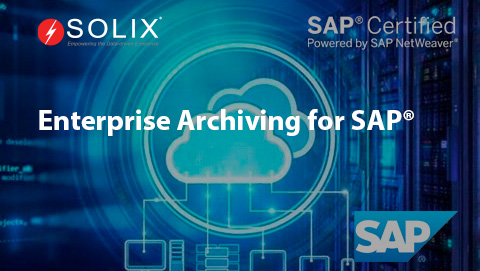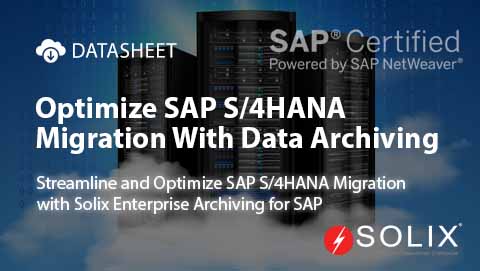
SQL Server End of Support What You Need to Know
Are you aware that SQL Server has specific end-of-support dates that can impact your organization If youre using a version of SQL Server that is approaching or has reached its end of support, understanding the implications is crucial. Simply put, once Microsoft declares an SQL Server version as end of support, users will no longer receive official updates, including critical security patches. This can expose your systems to vulnerabilities and compliance issues.
As a database professional myself, I understand how daunting the prospect of navigating SQL Server end of support can be. The last thing you want is to be caught unprepared when your system loses vital support. Today, Ill walk you through what SQL Server end of support means, how to prepare for it, and the resources you can access to ensure a smooth transitionspecifically through Solix innovative solutions.
Understanding SQL Server End of Support
Each version of SQL Server follows a lifecycle; this lifecycle includes phases like mainstream support and extended support. The mainstream support phase offers new features, security updates, and hotfixes. However, as this phase winds down, organizations must be proactive in managing their SQL environments. The end of support doesnt simply mean the cessation of help from Microsoft; it indicates potential risks to both your data security and compliance posture.
For example, SQL Server 2012 has its end of support date set for July 12, 2022. If youre still running this version or an older one like SQL Server 2008, continuing to use it can lead to severe ramifications. You may think youre saving costs by sticking with an older version, but in reality, it could cost you far more in security vulnerabilities and data breaches.
The Importance of Upgrading
Upgrading your SQL Server version is not merely a technical requirement; its a strategic move for ensuring business continuity. When you upgrade, you also gain access to new features and performance improvements that can enhance your databases efficiency and reliability. Additionally, modern SQL Server versions come with advanced security features that are essential for safeguarding sensitive data.
At my organization, we faced this challenge just last year. We were operating on an older SQL Server version, and dire security alerts prompted us to take action. Making the upgrade was initially daunting, but the guidance and support we engaged from industry experts made the transition much smoother. We soon realized the new features dramatically influenced our processes, allowing our teams to work faster and more securely.
What to Expect After End of Support
Once your SQL Server version reaches its end of support, you lose access to critical updates that help safeguard your database operations. This exposes you to several risks. Without security updates, your system becomes vulnerable to emerging threats, which can lead to data breaches and compliance violations. Additionally, any compliance frameworks your organization adheres to might require updated software, thereby hindering your operational capabilities.
As such, planning your transition to a supported version should begin well before the end of support is reached. Throughout the migration process, youll want to prioritize data integrity and continuity, ensuring that your applications remain uninterrupted. An effective strategy often involves conducting audits of your current database systems, assessing the specific needs of your organization, and updating your architecture where necessary.
Taking Action with Solix
To facilitate a seamless transition, partnering with experts like Solix can be invaluable. Their comprehensive suite of services assists businesses in navigating databases with confidence. The Data Archiving Solutions offered by Solix, for instance, are designed to keep your data intact while enhancing overall system performance. Utilizing advanced technologies and best practices, Solix can help you archive legacy data, allowing you to embrace newer SQL Server versions without losing critical information.
I encourage organizations to reach out to professionals who can provide tailored support based on their unique circumstances. Whether you need assistance with data migration, compliance checks, or even enhanced database management systems, having a partner like Solix can be a game changer.
Steps to Prepare for SQL Server End of Support
Now that weve established the importance of addressing SQL Server end of support, lets discuss actionable steps you can take. Here are some recommendations based on our experience
1. Assess Your Current Environment Conduct a thorough audit of your existing SQL Server installations. Determine which versions need to be upgraded and the resources necessary for this process.
2. Plan Your Migration Strategy Identify critical applications tied to your databases. Make a detailed plan of how and when youll execute the migration. Set realistic timelines that minimize downtime.
3. Engage Experts Early Dont wait until the deadline looms. Contact professionals, like those at Solix, to help you devise a strategy that works for your organization. Their expertise can save you a lot of headaches.
4. Implement the Upgrade Once you have your plan in place, follow through with the actual upgrade. Ensure the data migration is stable and that stakeholders are informed about the transition.
5. Monitor and Optimize Post-migration, continue to monitor the database performance and security. Make adjustments where necessary to optimize your SQL Servers efficiency.
Wrap-Up
SQL Server end of support is a significant event that should not be ignored. Plan early, engage experts, and upgrade in a timely manner to safeguard your organizations data and compliance standards. By leveraging solutions offered by Solix, such as their Data Archiving Solutions, you can ease the migration process while enhancing overall data management. If you have any questions or need further assistance, feel free to contact Solix directly.
As you move forward, understanding the SQL Server end of support implications can significantly impact your organizations operational integrity. I urge you to take it seriously and act decisively.
Author Bio Elva is a database management professional who has seen the effects of SQL Server end of support firsthand. With years of experience in the industry, she strives to help organizations achieve optimal database management through effective strategies and expert advice.
Disclaimer The views expressed in this blog are the authors own and do not necessarily reflect the official position of Solix.
Sign up now on the right for a chance to WIN $100 today! Our giveaway ends soon‚ dont miss out! Limited time offer! Enter on right to claim your $100 reward before its too late!
DISCLAIMER: THE CONTENT, VIEWS, AND OPINIONS EXPRESSED IN THIS BLOG ARE SOLELY THOSE OF THE AUTHOR(S) AND DO NOT REFLECT THE OFFICIAL POLICY OR POSITION OF SOLIX TECHNOLOGIES, INC., ITS AFFILIATES, OR PARTNERS. THIS BLOG IS OPERATED INDEPENDENTLY AND IS NOT REVIEWED OR ENDORSED BY SOLIX TECHNOLOGIES, INC. IN AN OFFICIAL CAPACITY. ALL THIRD-PARTY TRADEMARKS, LOGOS, AND COPYRIGHTED MATERIALS REFERENCED HEREIN ARE THE PROPERTY OF THEIR RESPECTIVE OWNERS. ANY USE IS STRICTLY FOR IDENTIFICATION, COMMENTARY, OR EDUCATIONAL PURPOSES UNDER THE DOCTRINE OF FAIR USE (U.S. COPYRIGHT ACT § 107 AND INTERNATIONAL EQUIVALENTS). NO SPONSORSHIP, ENDORSEMENT, OR AFFILIATION WITH SOLIX TECHNOLOGIES, INC. IS IMPLIED. CONTENT IS PROVIDED "AS-IS" WITHOUT WARRANTIES OF ACCURACY, COMPLETENESS, OR FITNESS FOR ANY PURPOSE. SOLIX TECHNOLOGIES, INC. DISCLAIMS ALL LIABILITY FOR ACTIONS TAKEN BASED ON THIS MATERIAL. READERS ASSUME FULL RESPONSIBILITY FOR THEIR USE OF THIS INFORMATION. SOLIX RESPECTS INTELLECTUAL PROPERTY RIGHTS. TO SUBMIT A DMCA TAKEDOWN REQUEST, EMAIL INFO@SOLIX.COM WITH: (1) IDENTIFICATION OF THE WORK, (2) THE INFRINGING MATERIAL’S URL, (3) YOUR CONTACT DETAILS, AND (4) A STATEMENT OF GOOD FAITH. VALID CLAIMS WILL RECEIVE PROMPT ATTENTION. BY ACCESSING THIS BLOG, YOU AGREE TO THIS DISCLAIMER AND OUR TERMS OF USE. THIS AGREEMENT IS GOVERNED BY THE LAWS OF CALIFORNIA.




